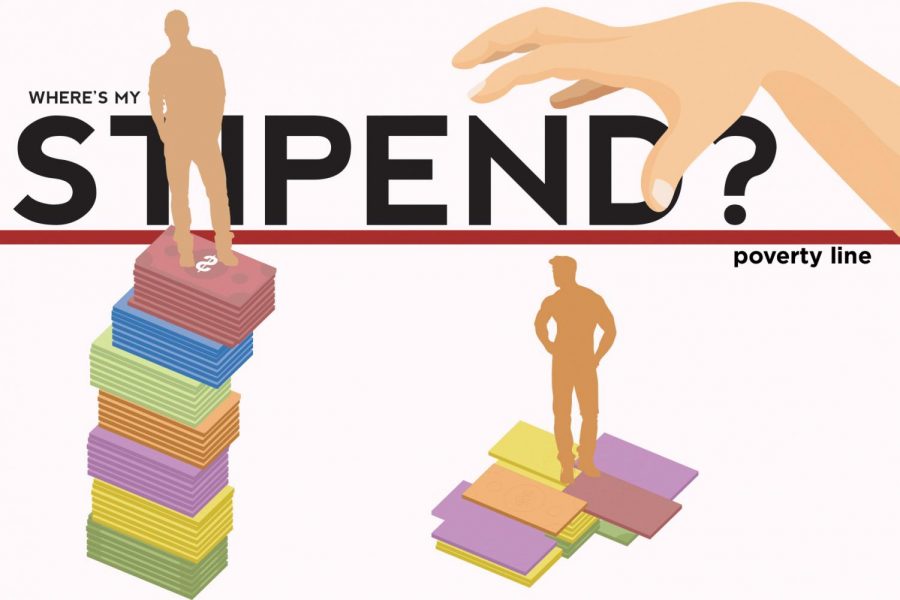Grad students can’t afford cuts to income
Many people affected have no other income but expected to fulfill heavy workload for university
After subtracting rent, healthcare, utilities, food, insurance and other expenses from their shrinking monthly stipend, many graduate students in the Voiland College of Engineering and Architecture simply won’t have enough money to continue at WSU.
November 8, 2017
Graduate students in the Voiland College of Engineering and Architecture will see their monthly stipends reduced next semester to fulfill the spending reductions each department has to make. While these cuts hurt everyone, they will disproportionately affect international students, a population already facing deep adversity.
Many students have used their current stipend to plan for their whole school year and now must figure out how to plan around the cuts. GPSA President Shane Reynolds said international students will have to make difficult decisions on whether they can afford to stay at WSU.
“International students will have to just deal with the cuts, and I don’t know how they’re going to do it,” Reynolds said. “I’m concerned that a number of international students might have to quit. I don’t know if that’s actually going to happen, but I’m really concerned about that.”
The proposed cuts will drop the minimum monthly stipend for graduate students to $1,670 and doctorate students to $1,844. Originally, the minimums were $2,057 and $2,207. The stipends are already so low that graduate students are barely above the poverty line.
According to the WSU Housing and Residence Life website, the average cost of living alone in Pullman is between $500 and $800. After rent, utilities, phone bills, food, insurance and books, graduate students will have barely enough money to survive.
“Putting those cuts on the backs of the people who A: didn’t spend the money, and B: don’t have any ability to advocate for themselves or have any say in that budget process is really unfortunate,” Reynolds said.
Graduate students are doing work that will advance numerous technological fields and deserve to be paid fair and competitive wages. Students in the Voiland College specifically are working on green energy and the reduction of waste, projects vital for humanity’s survival. These lower stipends take advantage of the graduate students without recognizing their importance.
The cuts do not take into account the larger scope of financial situations many graduate students are in. Reynolds pointed out that many international students have spouses that might not have work visas, making them the sole providers for their families. While many domestic students can take out student loans, this isn’t an option for international students.
Outside of loans, most graduate students have no other way to earn additional funds.
“Most of the contracts people are on say they can’t work outside of the work they’re doing for the school,” Reynolds said. “They can’t have another job. So it’s really cornering a lot of these students into ‘This is all you get and you just have to make it work.’ ”
Graduate students have been encouraged to apply for research assistantships, which typically pay with federal grant money or money from a corporation. This, however, is asking students to put their faith in something they cannot control and is notoriously difficult to obtain.
“I think we should make it a priority to not harm the people we rely on to do all the work to support everybody,” Reynolds said. “Without the students, the institution wouldn’t exist. Without the students, the faculty wouldn’t be able to get their work done.”
WSU must recognize it is nothing without its students. These stipend cuts are just one policy in an already long list of proposed cuts that disproportionately harm students. We did not mismanage the budget and should not be held responsible for taking the cuts to fix it.











